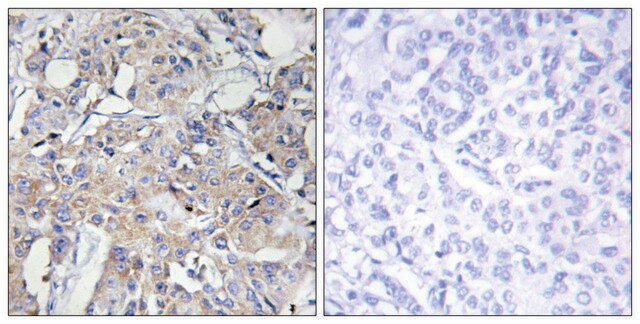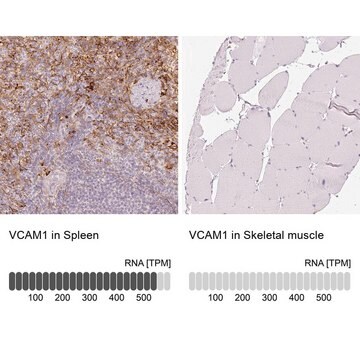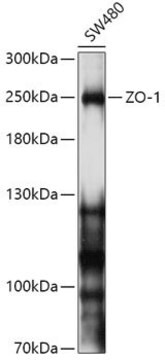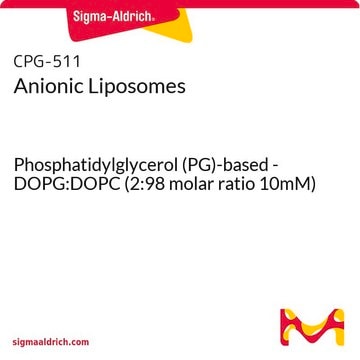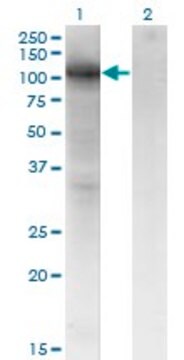MAB2627
Anti-VCAM-1 (CD106) Antibody, clone 6C7.1
clone 6C7.1, from rat
Synonyme(s) :
vascular cell adhesion molecule 1, vascular cell adhesion protein 1, CD106 antigen
About This Item
Produits recommandés
Source biologique
rat
Niveau de qualité
Forme d'anticorps
purified immunoglobulin
Type de produit anticorps
primary antibodies
Clone
6C7.1, monoclonal
Espèces réactives
mouse
Technique(s)
flow cytometry: suitable
immunocytochemistry: suitable
immunohistochemistry: suitable
immunoprecipitation (IP): suitable
Isotype
IgG1κ
Numéro d'accès NCBI
Numéro d'accès UniProt
Conditions d'expédition
dry ice
Modification post-traductionnelle de la cible
unmodified
Informations sur le gène
human ... L1CAM(3897) , VCAM1(7412)
Description générale
Immunogène
Application
Immunocytochemistry Analysis: A previous lot was used by independent laboratory in IC. (Norman, U., et al. (2008). Journal of Leukocyte Biology. 84:68-76.)
Qualité
Flow Cytometry Analysis: 10 µg of this antibody detected VCAM-1 on mouse bone marrow cells.
Description de la cible
Forme physique
Autres remarques
Vous ne trouvez pas le bon produit ?
Essayez notre Outil de sélection de produits.
Code de la classe de stockage
12 - Non Combustible Liquids
Classe de danger pour l'eau (WGK)
WGK 2
Point d'éclair (°F)
Not applicable
Point d'éclair (°C)
Not applicable
Certificats d'analyse (COA)
Recherchez un Certificats d'analyse (COA) en saisissant le numéro de lot du produit. Les numéros de lot figurent sur l'étiquette du produit après les mots "Lot" ou "Batch".
Déjà en possession de ce produit ?
Retrouvez la documentation relative aux produits que vous avez récemment achetés dans la Bibliothèque de documents.
Notre équipe de scientifiques dispose d'une expérience dans tous les secteurs de la recherche, notamment en sciences de la vie, science des matériaux, synthèse chimique, chromatographie, analyse et dans de nombreux autres domaines..
Contacter notre Service technique